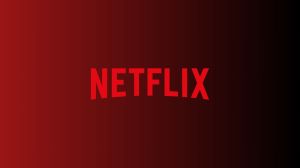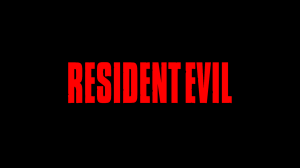Netflix, a titan in the streaming landscape, is renowned for its ambitious slate of original programming, greenlighting projects that span every conceivable genre. This creative freedom has birthed numerous successes, but it also means some shows, despite intriguing premises or strong source material, don’t quite hit the mark or find a sustainable audience, leading to their cancellation. While fans often mourn the loss of any series, sometimes a cancellation isn’t an ending, but an opportunity for a complete do-over. The idea of a reboot can be particularly appealing for shows where the foundational concept held immense promise that the initial execution, for various reasons, failed to fully realize.
Videos by ComicBook.com
This list focuses on ten cancelled Netflix series whose core ideas were compelling enough to warrant a second attempt from scratch. For these shows, a reboot could be the chance to finally deliver on the potential that made them exciting in the first place, learning from past missteps to craft something truly special.
1) October Faction
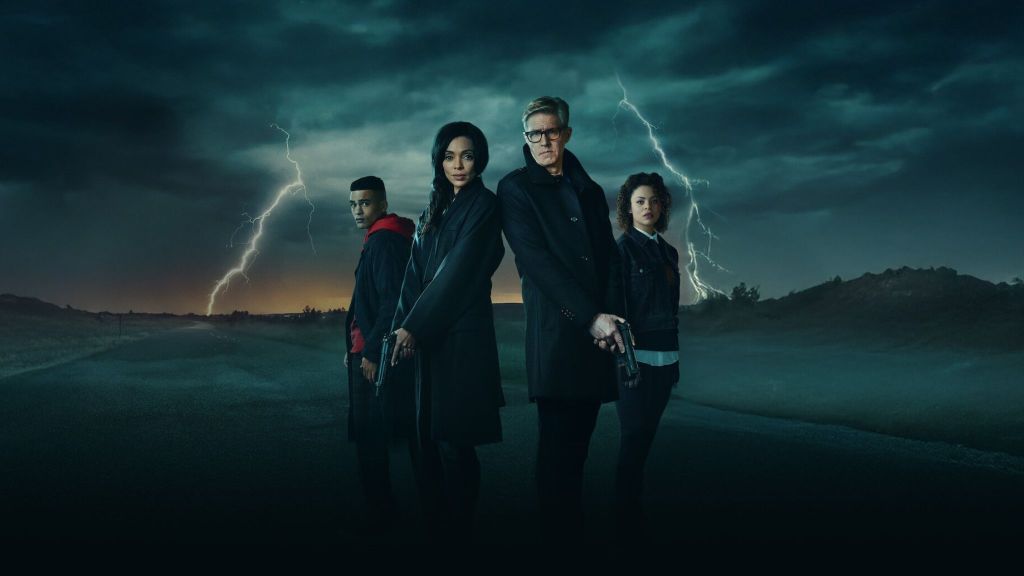
The IDW comic series October Faction, created by Steve Niles and Damien Worm, served as the basis for the Netflix show of the same name. The narrative centered on Fred (J.C. MacKenzie) and Deloris (Tamara Taylor), who presented themselves as globetrotting academics while secretly operating as highly skilled agents for Presidio, a clandestine organization dedicated to hunting supernatural threats. Their teenage twins, Geoff (Gabriel Darku) and Viv (Aurora Burghart), were largely unaware of this perilous double life until family secrets began to unravel, and they started manifesting their own unique abilities, forcing them to confront a world of monsters and magic.
Critical reception of October Faction was largely negative, with many reviews pointing to a muddled tone that struggled to effectively balance its horror, action, and teen drama elements. The adaptation also faced criticism for significant pacing issues and for diluting the darker, more stylized atmosphere of the original comic book. Unsurprisingly, Netflix cancelled October Faction after a single season. A reboot could rectify these shortcomings by more faithfully embracing the source material’s gothic sensibilities and intricate lore. A new creative team could deliver a more cohesive and compelling series, delving deeper into the shadowy history of Presidio, the psychological toll of the Allens’ dangerous profession, and the complex moral ambiguities inherent in a life spent hunting creatures that are not always purely evil.
2) V-Wars

The Netflix series V-Wars drew its inspiration from Jonathan Maberry’s comic book series of the same name. The show starred Ian Somerhalder as Dr. Luther Swann, a scientist whose world is thrown into chaos when his best friend, Michael Fayne (Adrian Holmes), contracts a mysterious prion disease. This ancient pathogen, unleashed by melting polar ice caps, mutated its victims into predatory, blood-craving creatures, effectively vampires. As a result, Dr. Swann found himself at the epicenter of this emerging pandemic, desperately working to understand the science behind the transformation and to find a cure, even as society fractured into warring human and vampire factions, leading to a brutal global conflict.
Despite its high-concept premise, V-Wars was cancelled by Netflix after its first season. The show struggled to gain significant critical traction or build a substantial audience, with reviews often citing a somewhat generic execution of its plot and underdeveloped character arcs as key weaknesses. The core idea of a viral outbreak creating an intelligent new predatory species and the ensuing societal collapse, however, remains exceptionally enticing. A reboot could vastly improve upon the original by adopting a more visceral, survival-horror tone. Such a new version could deepen the scientific and ethical dilemmas Dr. Swann faced, and focus more intently on the terrifying evolution of the vampires and the brutal realities of the inter-species war, thereby creating a more impactful series.
3) Chambers

Chambers presented a chilling supernatural horror story centered on Sasha Yazzie (Sivan Alyra Rose), a Native American teenager who received a life-saving heart transplant. Following the surgery, Sasha began to experience unsettling changes, progressively absorbing the memories, personality traits, and even the trauma of her deceased donor, a privileged young woman named Becky LeFevre. Furthermore, Uma Thurman and Tony Goldwyn portrayed Becky’s grieving parents, whose intense and increasingly sinister interest in Sasha hinted at dark secrets surrounding their daughter’s death and the transplant’s true nature. The series aimed for a slow-burn psychological horror experience, exploring themes of identity and the uncanny, but Netflix cancelled Chambers after one season.
While the concept was intriguing, Chambers received mixed reviews, with critics often highlighting its convoluted plot and uneven pacing, which ultimately diluted its unsettling atmosphere. Yet, the core idea of a transplant recipient becoming a vessel for another’s darkness holds immense potential for psychological and supernatural dread. A reboot could streamline the narrative, focusing more intensely on Sasha’s terrifying loss of self and the sinister machinations of the LeFevre family. A tighter execution, perhaps with a clearer mythology regarding the supernatural elements, could transform Chambers into the truly unnerving horror series it initially aspired to be.
4) The Irregulars
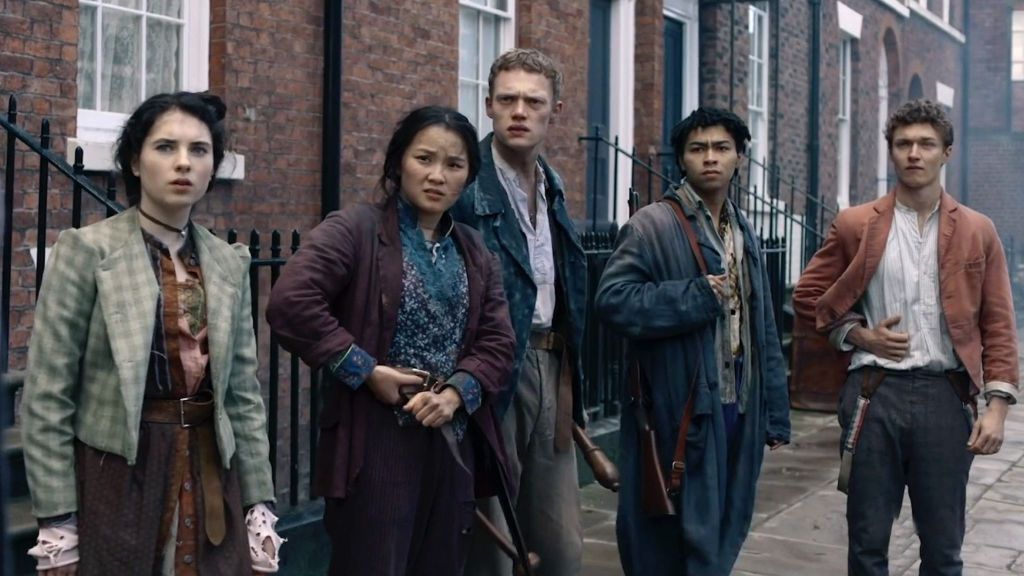
Set in Victorian London, The Irregulars offered a supernatural twist on the Sherlock Holmes mythos.. The narrative focused primarily on a group of troubled, working-class teenagers known as the Baker Street Irregulars, led by the resourceful Bea (Thaddea Graham) and her psychically gifted younger sister, Jessie (Darci Shaw). These teens found themselves manipulated by a brooding and sinister Doctor Watson (Royce Pierreson) and his elusive, drug-addled partner, Sherlock Holmes (Henry Lloyd-Hughes), into solving increasingly bizarre and horrifying crimes. These cases involved dark magic, otherworldly entities, and a dangerous rip in the fabric of reality itself.
Despite initially strong viewership numbers, Netflix cancelled The Irregulars after a single season. Critical responses to the show were mixed, as some reviewers found its ambitious blend of teen angst, Holmesian lore, and supernatural horror to be tonally inconsistent, with an overarching plot that felt somewhat unfocused and occasionally convoluted. A reboot could offer a valuable chance to refine this unique mix of genres and ideas. By potentially focusing more on the occult detective aspects, deepening the psychological complexity of its young protagonists as they navigate their powers and traumas, or crafting a more cohesive and compelling supernatural mythology intrinsically tied to Holmes and Watson, a new iteration could deliver a more consistently engaging dark fantasy series.
5) Cursed
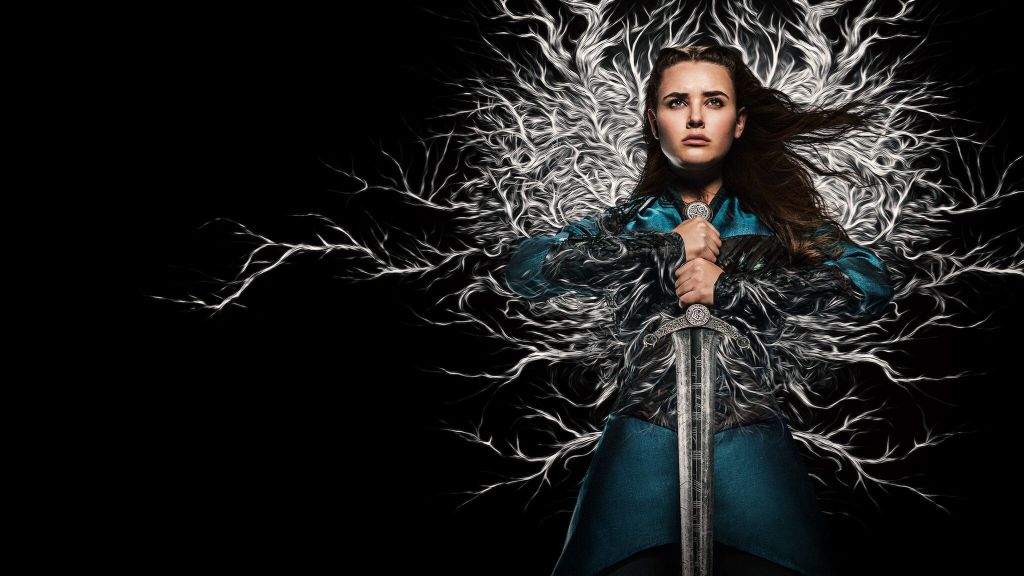
Based on the illustrated young adult novel of the same name by Frank Miller and Tom Wheeler, Cursed sought to reimagine the familiar Arthurian legend through the eyes of Nimue (Katherine Langford). A young Fey woman possessing extraordinary and often feared magical abilities, Nimue was an outcast in her own village. Following a brutal attack by religious zealots known as the Red Paladins, Nimue’s dying mother entrusted her with the legendary Sword of Power, tasking her with delivering the powerful artifact to the enigmatic wizard Merlin (Gustaf Skarsgård). Nimue’s perilous quest brought her into contact with a young mercenary named Arthur (Devon Terrell), as she gradually evolved into a potent symbol of rebellion against tyranny.
Despite its high-profile creators and recognizable intellectual property, Cursed faced criticism for uneven pacing, underdeveloped character arcs, and a plot that sometimes struggled to effectively balance its numerous fantasy elements with its revisionist take on established lore. Nevertheless, the core concept of exploring Nimue’s untold story as a central figure in Arthurian myth remains rich with potential. A reboot could benefit significantly from a more focused narrative structure, deeper exploration of its characters’ motivations and interpersonal relationships, and a more consistent visual and thematic tone. A version that perhaps more fully embraces the darker, more stylized vision often associated with Frank Miller’s work could deliver a more impactful and memorable fantasy epic.
6) Messiah
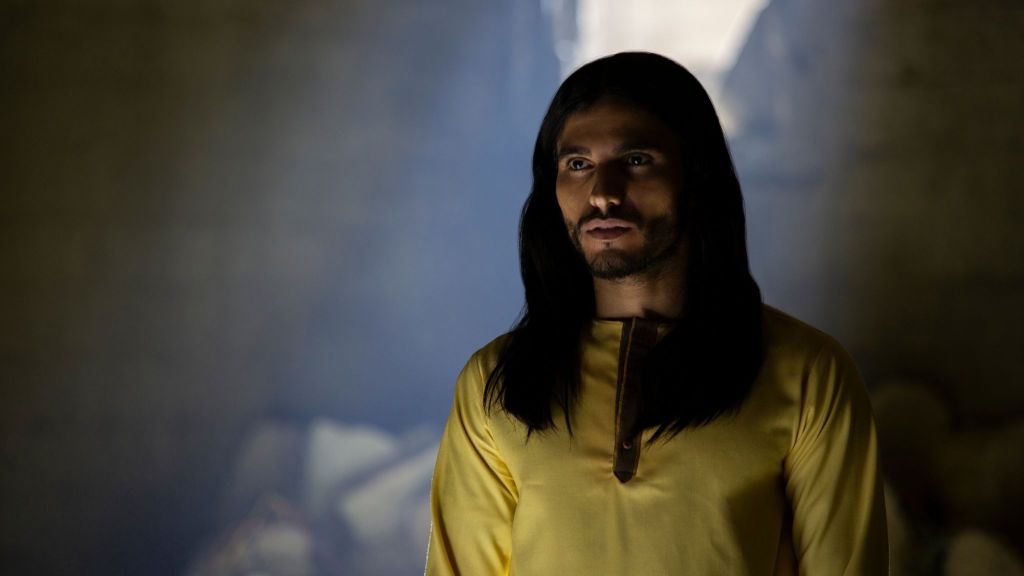
Messiah posed a provocative contemporary question: what if a charismatic individual, known only as Al-Masih (Mehdi Dehbi), suddenly appeared in the Middle East, seemingly performing miracles and rapidly amassing a massive global following through viral social media, all while claiming to be sent by a divine power? The series followed skeptical CIA officer Eva Geller (Michelle Monaghan) as she spearheaded a complex international investigation to determine if Al-Masih was a genuine messianic figure, a sophisticated political operative with a hidden agenda, or a dangerous con artist capable of destabilizing the entire world order. The show aimed for a high-stakes global thriller exploring themes of faith, media manipulation, and geopolitical paranoia.
The cancellation of Messiah after one season, reportedly due in part to its controversial subject matter and the considerable logistical challenges of its international production, left the central mystery of Al-Masih’s true nature and ultimate intentions tantalizingly unresolved. But given that Messia’s premise is strikingly relevant in an era dominated by information warfare and the rapid spread of influence through social media, a reboot could tackle these profound questions with a fresh narrative approach. Perhaps a more focused storyline, or a different structural format, could allow a new version to fully explore its compelling themes without succumbing to the production complexities that have hindered the original.
7) Marco Polo
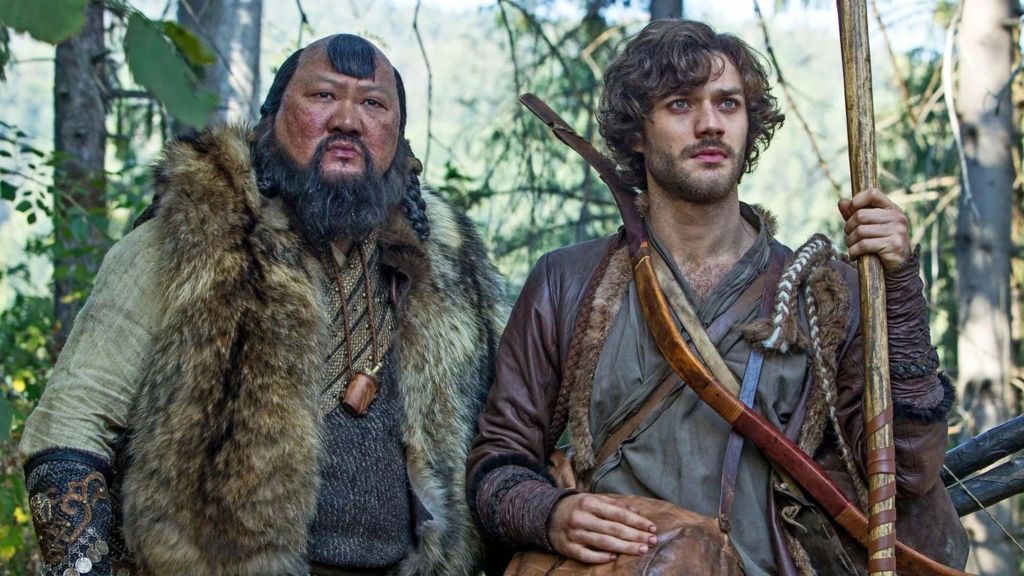
Netflix’s ambitious historical drama Marco Polo chronicled the legendary explorer’s (Lorenzo Richelmy) formative experiences as a young Venetian adventurer in the often treacherous 13th-century court of Kublai Khan (Benedict Wong), the powerful Mongol emperor who conquered much of Asia and founded the Yuan dynasty in China. The series aimed for an epic scale, depicting brutal battles, intricate political machinations within the sprawling Mongol Empire, significant cultural clashes between East and West, and Marco Polo’s personal journey from a captive outsider to a trusted confidant and agent of the Khan.
Despite its impressive production values and some strong performances, particularly from Wong as Kublai Khan, Netflix cancelled Marco Polo after two seasons and a Christmas special. Reports indicated that its very high production costs and a mixed critical reception contributed to this decision. Nevertheless, the fascinating historical period and its larger-than-life figures deserve a second chance. A new creative vision, balancing the necessary spectacle with tighter storytelling and bigger budget constraints, could finally deliver a consistently gripping historical saga.
8) Daybreak
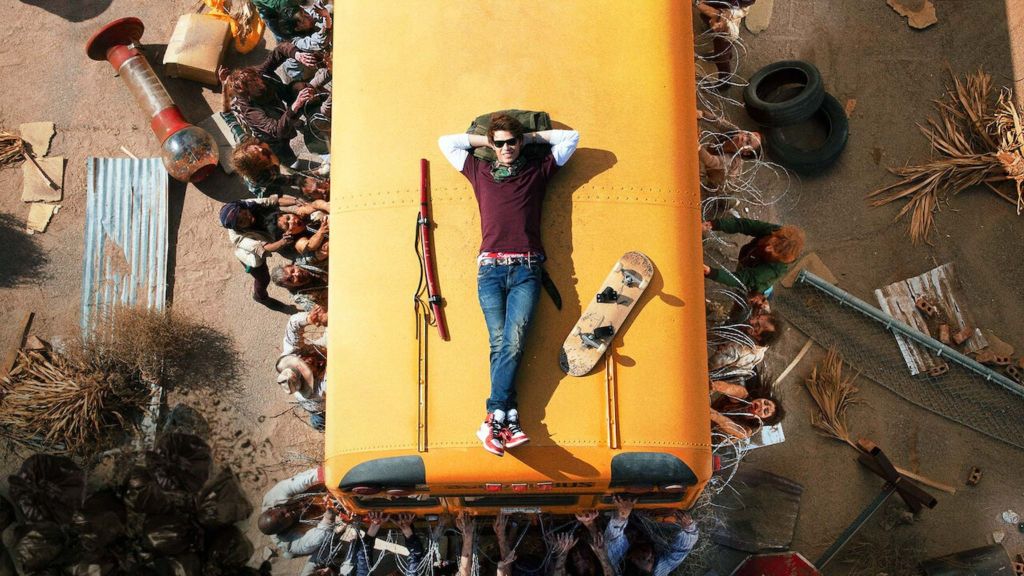
A wildly inventive genre mashup, Daybreak plunged viewers into a post-apocalyptic Glendale, California, where a biological weapon had mysteriously turned all adults into mindless zombie-like creatures called “ghoulies,” leaving the surviving teenagers to inherit the ruins of their world. The series primarily followed high school outcast Josh Wheeler (Colin Ford) on a fourth-wall-breaking quest to find his missing girlfriend, Sam Dean (Sophie Simnett). Josh navigated this dangerous new landscape populated by warring teenage factions, each based on familiar high school cliques, all vying for territory and resources. Finally, Matthew Broderick delivered a standout performance as the gleefully unhinged former Principal Burr, one of the few surviving adults.
Cancelled after a single season, Daybreak left its unique world and numerous character arcs with significant unexplored potential, especially following a major power shift in its finale that positioned Sam as a new leader. While a revival could continue the existing story, a full reboot offers the chance to refine and perhaps rebalance its distinctive blend of teen comedy, survival action, and sharp social satire. A new iteration could lean even harder into its meta-humor, expand on the bizarre and often hilarious societal rules established by the teen tribes, or perhaps even introduce a slightly darker tone to the survival elements while retaining the core premise of teenagers attempting to rebuild society in their own image.
9) Jupiter’s Legacy
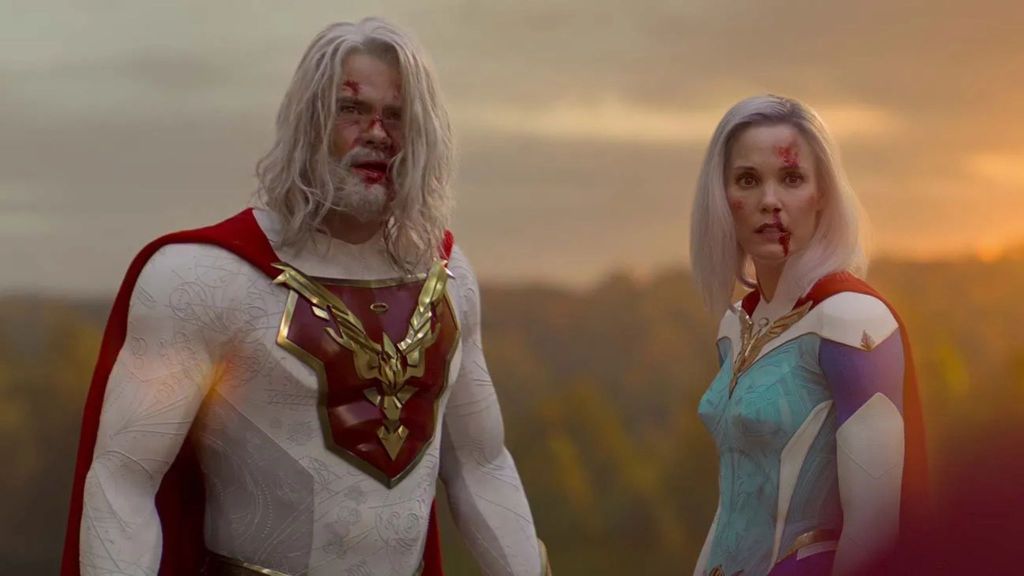
Based on the acclaimed comic book series of the same name by Mark Millar and Frank Quitely, Jupiter’s Legacy presented an ambitious multi-generational superhero narrative. It sharply contrasted the idealistic first generation of superheroes, known collectively as the Union with their disillusioned and often conflicted children. These younger characters struggled profoundly to live up to their parents’ legendary status and adhere to their rigid moral codes in a far more complex and cynical modern world. Because of that, the series interwove these present-day superheroic dramas and intense familial conflicts with extensive flashbacks detailing the Union’s mysterious origins and early heroic exploits.
Netflix cancelled the high-profile series after only one season, quickly announcing a pivot to develop an anime adaptation of Supercrooks, a spin-off title set within the same Millarworld universe. The live-action Jupiter’s Legacy faced criticism for its deliberate pacing, a sometimes overly somber tone, and its handling of the sprawling source material, which left many significant plot threads and character arcs from the comics either underdeveloped or entirely untouched. Still The rich world, complex character dynamics, and profound thematic questions about power, responsibility, and legacy embedded within Millar’s original work certainly deserve a more focused screen adaptation. A reboot could streamline the dual timelines, sharpen the intergenerational conflicts, and better capture the epic scope of the source material.
10) Cowboy Bebop
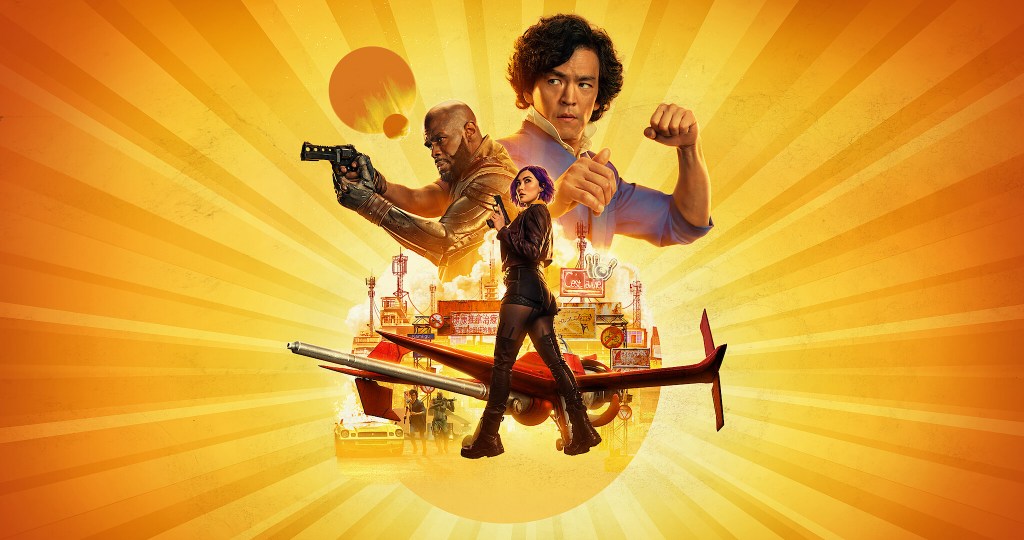
The live-action adaptation of the revered anime Cowboy Bebop brought the ragtag bounty hunting crew of the spaceship Bebop to a new medium. It aimed to translate the original’s signature and widely acclaimed blend of jazz-infused space Western aesthetics, melancholic noir storytelling, and kinetic action sequences as the crew chased down an array of colorful criminals across a multicultural solar system in the year 2071. Plus, the Netflix series even attempted to replicate iconic moments from the anime while also expanding upon certain character backstories and the broader lore of its unique world.
Despite considerable anticipation and a significant marketing push, Netflix’s version of Cowboy Bebop was met with a deeply mixed reception from both television critics and longtime fans of the original anime. Many viewers felt the show struggled to capture the specific nuanced tone, visual flair, philosophical depth, and unique pacing of its beloved source material. This ultimately led to its swift cancellation after only one season, even with an ending that explicitly introduced the fan-favorite character Radical Edward (Eden Perkins). A full reboot, rather than a direct continuation of the cancelled iteration, offers the opportunity for a completely fresh creative approach. A new team might reimagine the adaptation process entirely, opting for a narrative structure more faithful to the original’s masterful blend of episodic adventures and deeply resonant overarching character arcs, or a tone that more effectively balances its effortless cool with its profound underlying themes of loss, memory, and existentialism.
Which other cancelled Netflix shows do you think had a great idea that deserves a complete reboot? Share your thoughts in the comments below!




